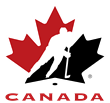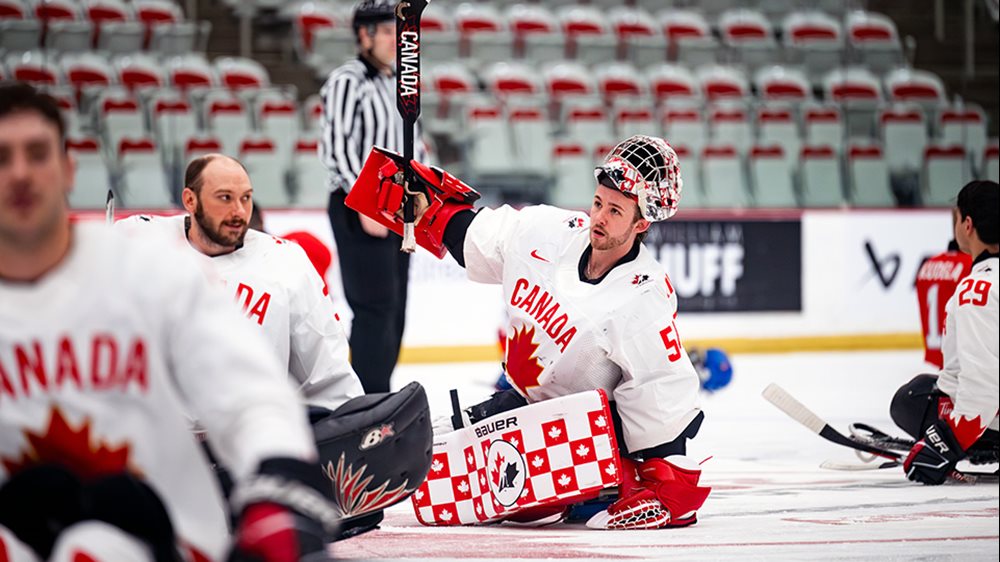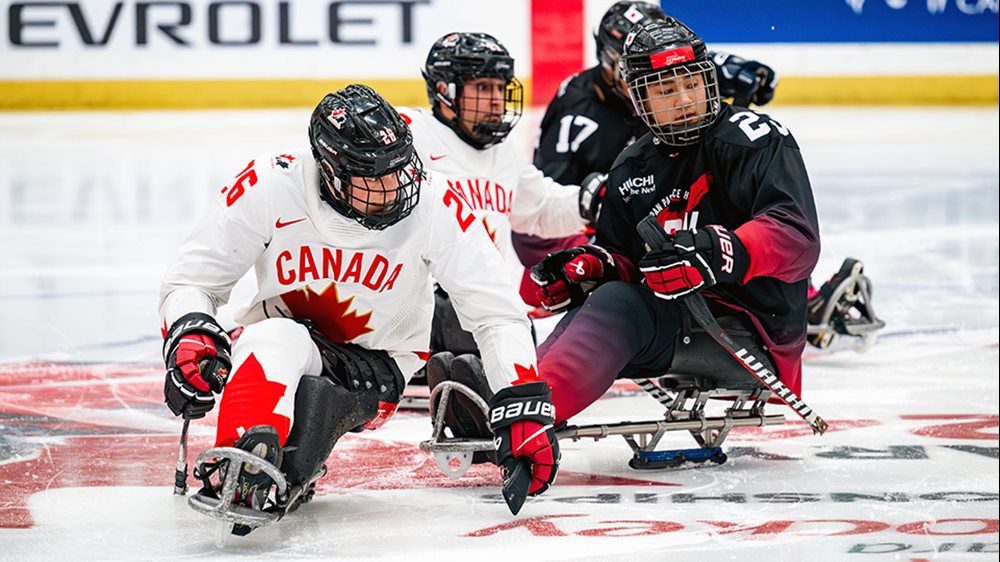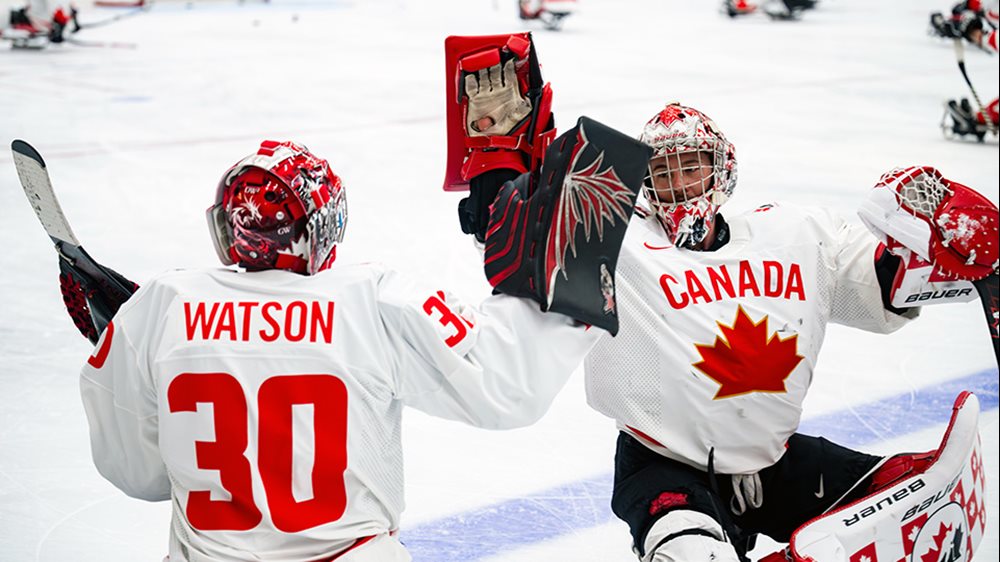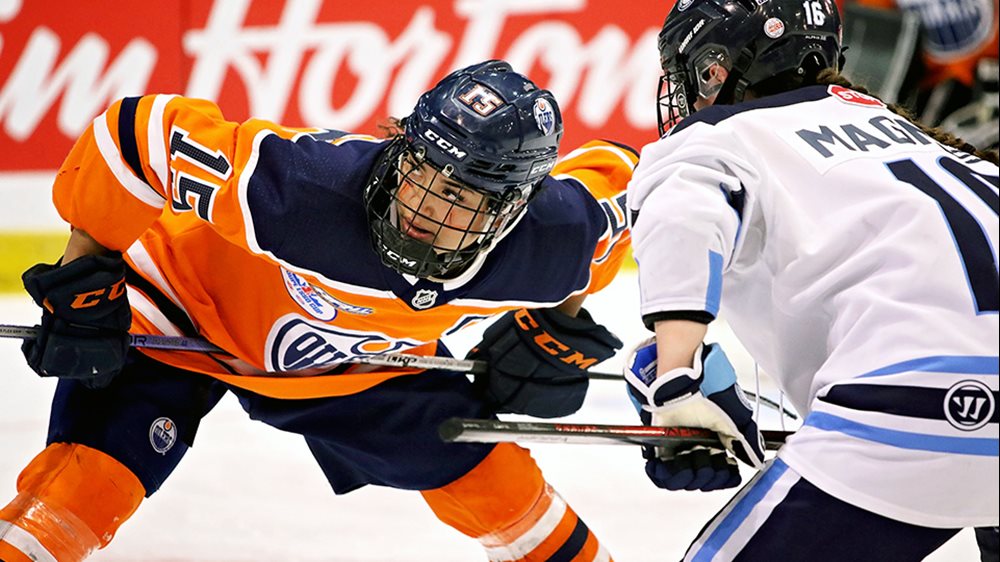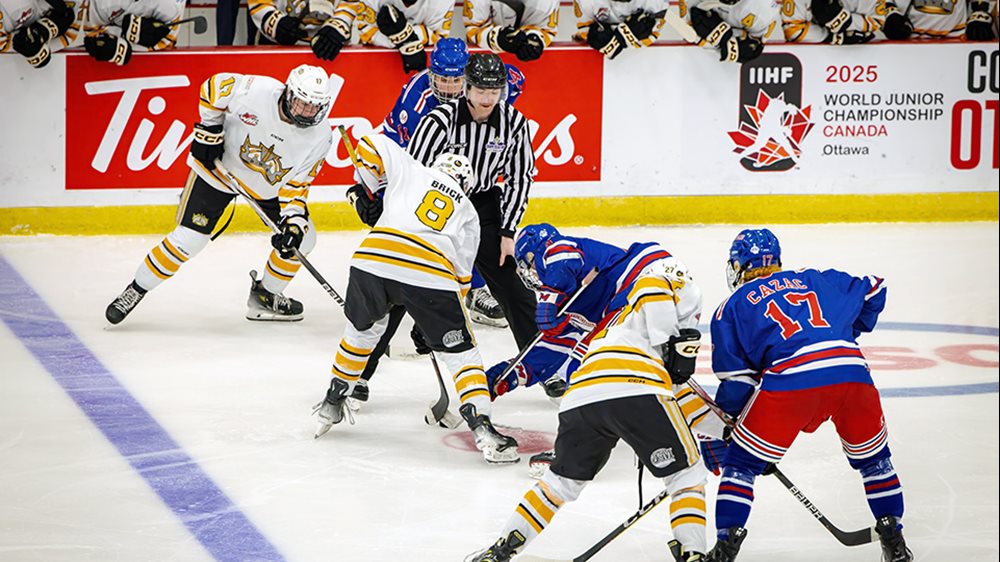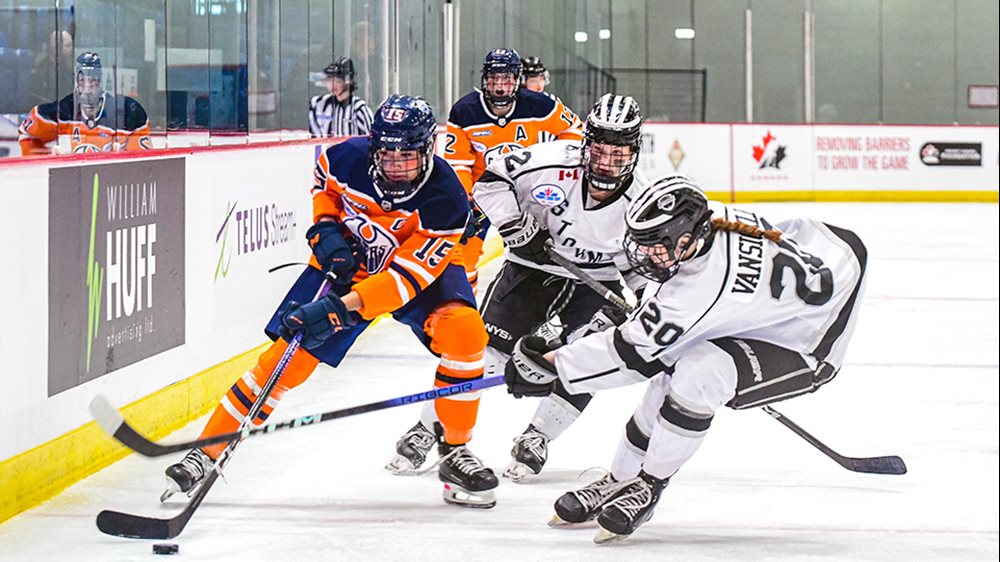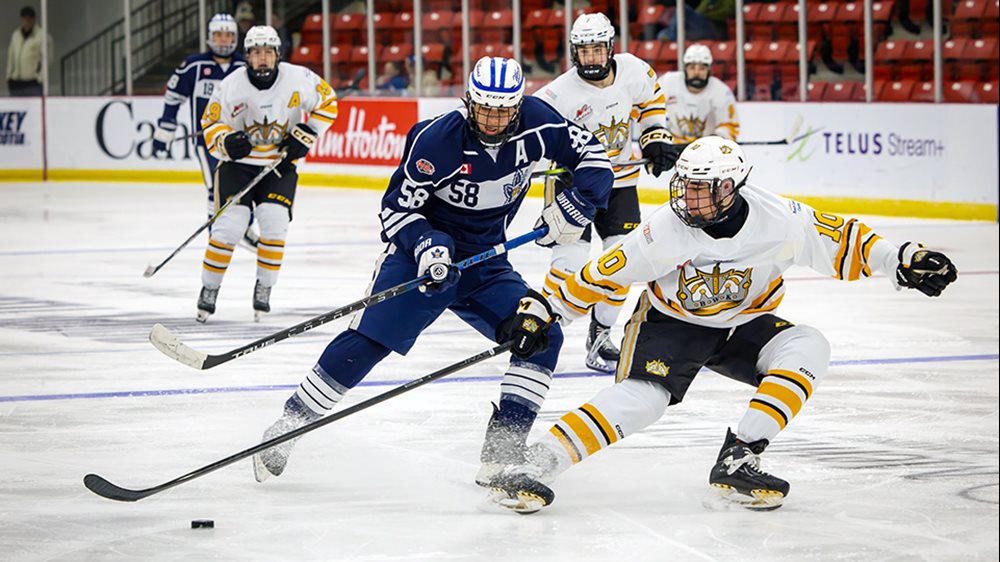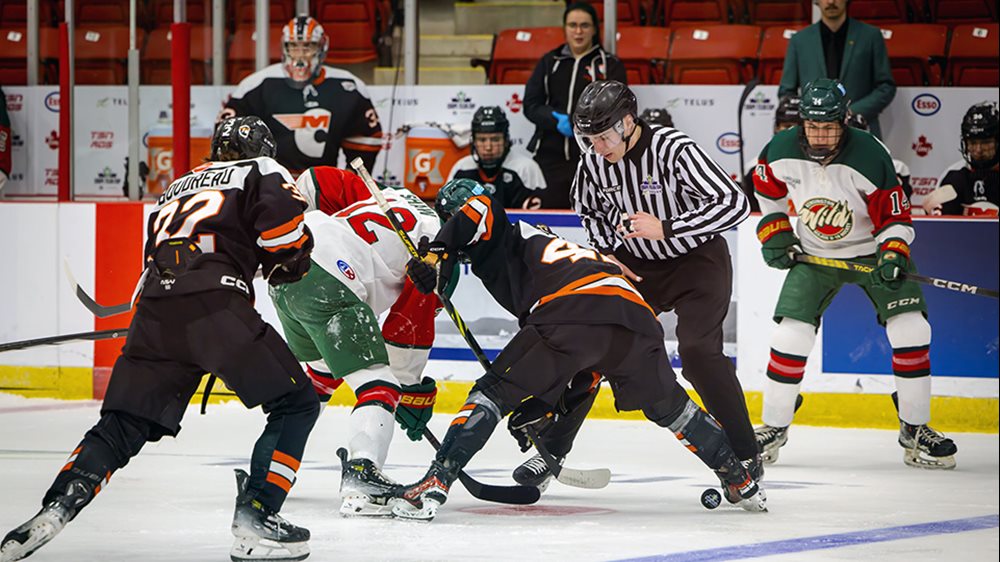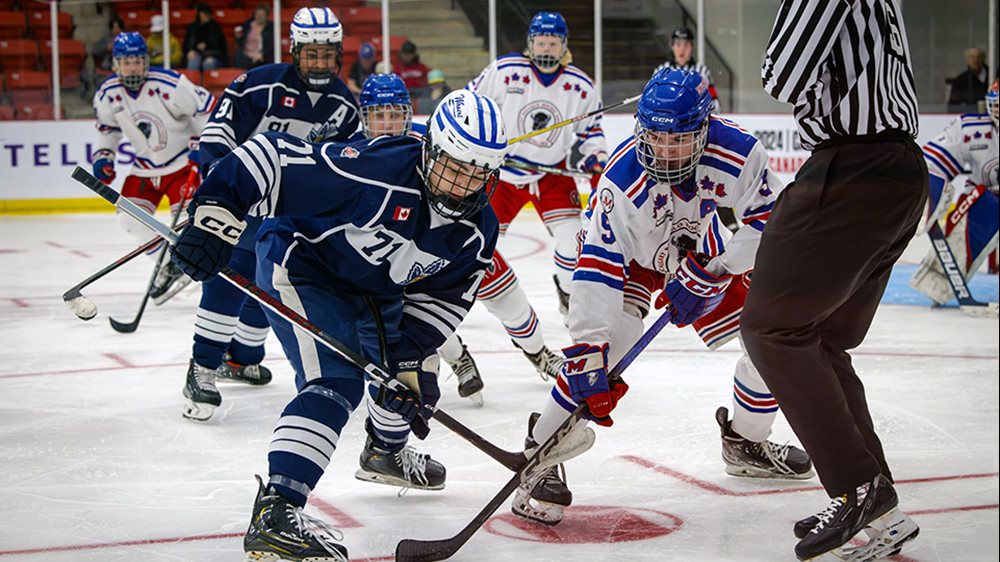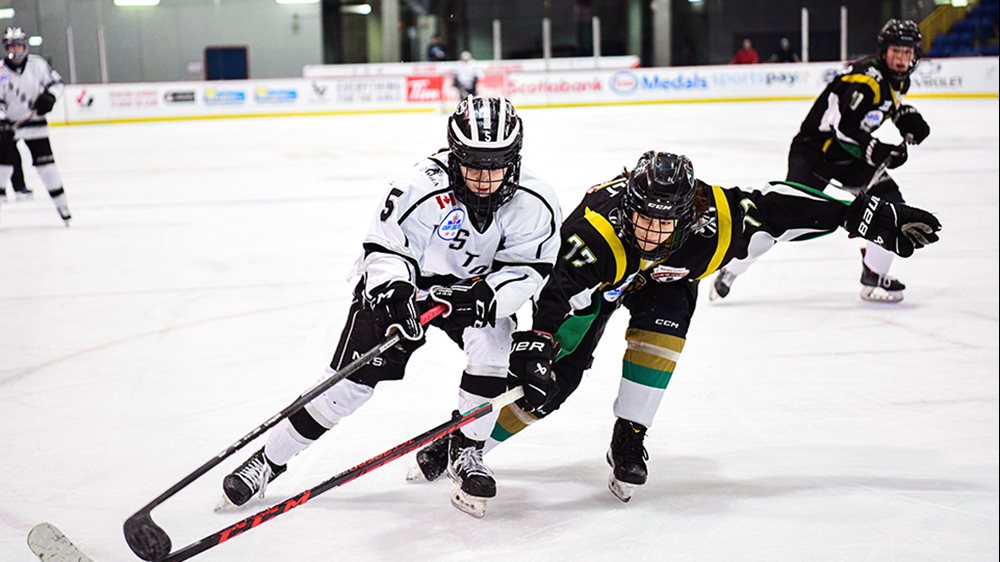
Dale Hawerchuk: 1963-2020
The hockey legend wore the Maple Leaf six times during his decorated career, and played a supporting role in one of Canadian hockey’s defining moments
Without Dale Hawerchuk, there is no Gretzky-to-Lemieux.
Hawerchuk, who lost his courageous battle with stomach cancer on Tuesday at the age of 57, took the all-important face-off deep in the Canadian zone with less than two minutes to go in a 5-5 tie in Game 3 of the 1987 Canada Cup final.
Flanked by 99 and 66, he tied up Soviet centre Vyacheslav Bykov just long enough for Lemieux to grab possession of the puck and poke it ahead to Gretzky. The rest is Canadian hockey history.
Just a reminder that it was Dale Hawerchuk who won the 1987 Canada Cup faceoff that kick-started the Gretzky-to-Lemieux game winner. I mean, Lemiuex- Hawerchuk- Gretzky on one line? The Russians never really had a chance. #RIPDale pic.twitter.com/TCpYKMUwJy
— Courtney Theriault (@cspotweet) August 18, 2020
That was the fourth of Hawerchuk’s six appearances in a Team Canada jersey. He finished his international career with 42 points (20-22—42) in 50 games, a silver and two bronze medals at the IIHF World Championship and a pair of Canada Cup titles.
The Toronto native first represented his country at the 1981 IIHF World Junior Championship; in the midst of a season that saw him post a ridiculous 183 points with the Cornwall Royals (QMJHL) and win a second consecutive Memorial Cup, Hawerchuk had five goals and nine points in five games, although the Canadians finished seventh.
He wasn’t around for a return trip to the World Juniors in the first year of the Program of Excellence – he was too busy putting up a 103-point season and winning the Calder Trophy as an 18-year-old with the Winnipeg Jets – but he joined names like Gretzky, Sittler, Gartner, Ciccarelli and Gainey at the 1982 IIHF World Championship, scoring three goals to help Canada win bronze.
Hawerchuk returned to worlds in 1986 and earned another bronze medal, and took silver in his final appearance at the tournament in 1989, when he had 12 points in 10 games and shared captain duties with Steve Yzerman.
He sandwiched that 1989 silver medal in between his two Canada Cup triumphs, winning the best-on-best showcase in 1987 and 1991 with a combined six goals and 11 points in 17 games.
Hawerchuk moved behind the bench following his playing days, which led to one final Team Canada experience; he was an assistant coach under Mike Williamson at the 2011 IIHF World U18 Championship, his lone international coaching assignment.
He was entering his 10th season as head coach of the Barrie Colts (OHL) when he stepped away from the team in September of last year to begin his cancer treatment.
Taken first overall by the Jets in the 1981 NHL Entry Draft, the 2001 Hockey Hall of Fame inductee recorded 1,409 points (518-891—1409) in 1,188 NHL games with Winnipeg, Buffalo, St. Louis and Philadelphia, leaving him 20th in all-time NHL scoring.
Hawerchuk was also inducted into the Manitoba Hockey Hall of Fame and Manitoba Sports Hall of Fame.
Hockey Canada sends its condolences to his wife Crystal, and children Ben, Eric and Alexis.
The hockey world has lost one of its greats, and the Hockey Canada family has lost a proud alumnus.
DALE HAWERCHUK
| Year | Event | GP | G | A | P | Result |
|---|---|---|---|---|---|---|
| 1981 | IIHF World Junior Championship | 5 | 5 | 4 | 9 | 7th Place |
| 1982 | IIHF World Championship | 10 | 3 | 1 | 4 | Bronze Medal |
| 1986 | IIHF World Championship | 8 | 2 | 4 | 6 | Bronze Medal |
| 1987 | Canada Cup | 9 | 4 | 2 | 6 | Champions |
| 1989 | IIHF World Championship | 10 | 4 | 8 | 12 | Silver Medal |
| 1991 | Canada Cup | 8 | 2 | 3 | 5 | Champions |
| TOTAL | 50 | 20 | 22 | 42 |
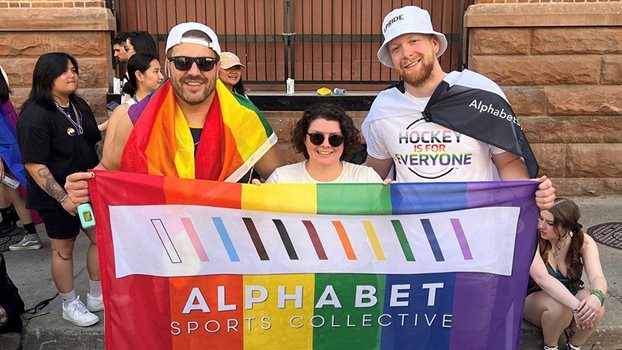
In my own words: Bayne Pettinger
The NHL agent talks about coming out, his work with Hockey Canada and making the game safer and more inclusive for the queer community
COVID-19 changed my life … in the best way possible. Strange, I know.
I was out to my family and close friends for a couple of years before the pandemic hit. But I lived in this world where I was running around, pushing deep thoughts to the back of my mind, saying, “I’ll deal with that later.” It was a fear of combining my personal life and my professional life.
But when COVID hit, I got to go home to Victoria. The world stopped, and so did my life as I knew it. The phone wasn’t ringing and the emails weren’t coming. The things that kept me occupied. It gave me the chance to sit down and have honest conversations.
I remember talking to Tyson Barrie, who was a client of mine and a good friend going back to our days growing up on Vancouver Island, and saying, “Hey, you know what? I think I’m going to come out.”
I thought maybe I’d just do an Instagram post, something simple. But Tyson and some other important people in my life thought I could really do something impactful, that I could be a face for the queer community in the game, because it was something hockey desperately needed.
So that started my journey. I began coming out to others, to big names in the game who I had crossed paths with through the years. When I told Connor McDavid, his response was simply, “Okay, that doesn’t matter.” I got a text from Sidney Crosby, who congratulated me and let me know he was there if I ever needed anything.
On Nov. 5, 2020, with the help of an article in The Athletic by Pierre Lebrun, I came out publicly.
Without discrediting how important my coming out was for my mental health, nobody really cared. It didn’t change how the hockey community saw me. Instead, it was … “Hey, you’re Bayne. You don’t judge us on who we date or who we’re attracted to. So why would we judge you?”
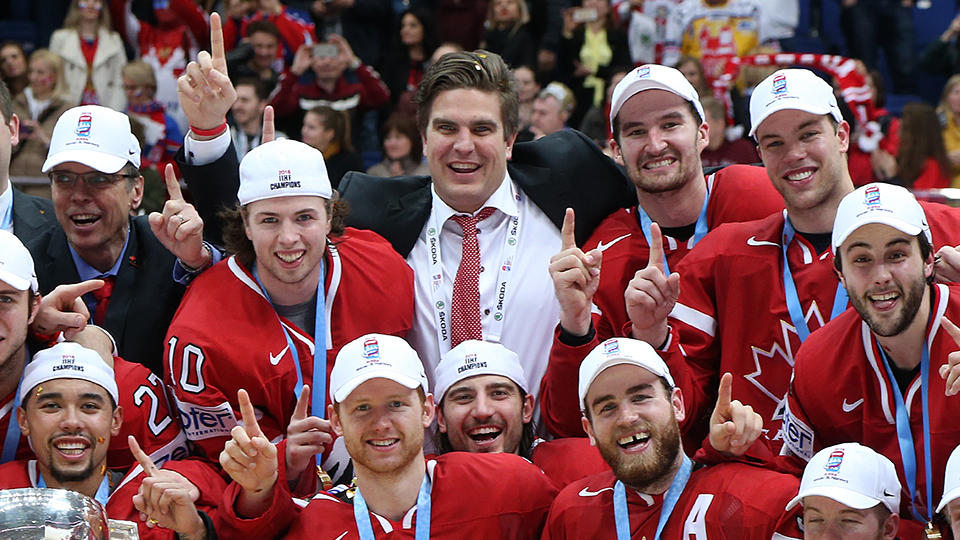
I got my foot in the door with Hockey Canada as an intern in the finance department in 2009 (I’m not much of a numbers guy, but it was the only position available at the time). From there I joined the hockey operations department in 2011, and my first assignment was the 2012 World Juniors in Alberta. I was travelling the world with Team Canada, riding these highs of winning gold at the Olympics, the IIHF World Championship and the World Juniors. And I was hanging around with a who’s-who of hockey, whether it’s Doug Armstrong, Jon Cooper, McDavid or Crosby. I left Hockey Canada in 2019 to become a certified NHLPA agent with CAA (Creative Artist Agency) and relocated to Toronto, finding my niche in the game and my personal happiness.
But there was always this fear that I couldn’t live my true life – to be accepted as a gay man – and also be a successful young executive in the game. It was a conundrum that kept me in the closet for a long time.
And it was that fear I needed to break down. It’s human nature – you always think the craziest things are going to happen, right? You’re going to tell someone and they’re going to not be your friend anymore. You get these thoughts in your head that you won’t be accepted or pushed out of hockey for some reason.
But that’s not what happened.
When I look back, I wonder why I was so anxious. And that’s what I try to preach to people who have reached out that are still in the closet thinking they won’t be accepted. The amount of outreach I had from people around the world, in the hockey world specifically, saying, “Hey, great for you. That’s awesome. You’re going to do great things,” was amazing. Just the overall support from friends, family, and even strangers was surreal to say the least.
And by no means did I ever think I’d become a face of being a queer man in hockey. But once I crossed that threshold and people reached out, I’m happy to speak on it. I think it’s important because you have to be out there and not everyone has the voice or platform to speak up.
That’s one of the reasons I helped launch the Alphabet Sports Collective (ASC) in March. We are a queer-led, not-for-profit that is empowering queer youth. Working with my co-chair, Brock McGillis, and ambassadors like Gord Miller, Jon Cooper, Morgan Rielly, Tessa Bonhomme – the support has been absolutely amazing.
We want to get our community to feel good about themselves. So if they want to work at Hockey Canada, or they want to be a sports agent, or they want to play in the NHL, now they have those faces, those supporters. Because I’m a strong believer that if you’ve never seen something done in front of you, you can’t tie to that and see yourself in those positions.
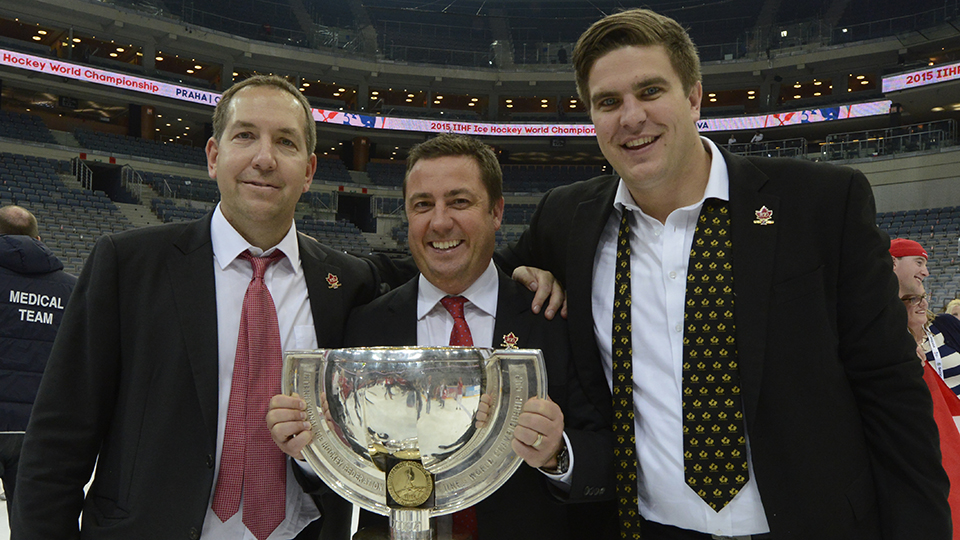
I’ve kind of come full circle now and I’m working with Hockey Canada as part of their ED&I (equity, diversity and inclusion) Task Team. I’ve really enjoyed it. I think it’s important to have representation from all walks of hockey.
For me, the key is showing vulnerability. Hockey Canada needs to get out there and listen to the issues and not think it has all the answers. We can write all the policies we want, run all the seminars we want. But we have to get to the grassroots of it. We need to hear the voices of the community, and there are groups out there that have done the work and understand the issues at hand. We don’t need to reinvent the wheel – we need to listen and learn.
I’m really proud Hockey Canada has this new group and it is listening and taking notes and not just rushing out a statement. Anyone can put out a statement. Let’s actually learn and implement new procedures and training so we’re not just spinning the wheel and checking the box. That’s the goal.
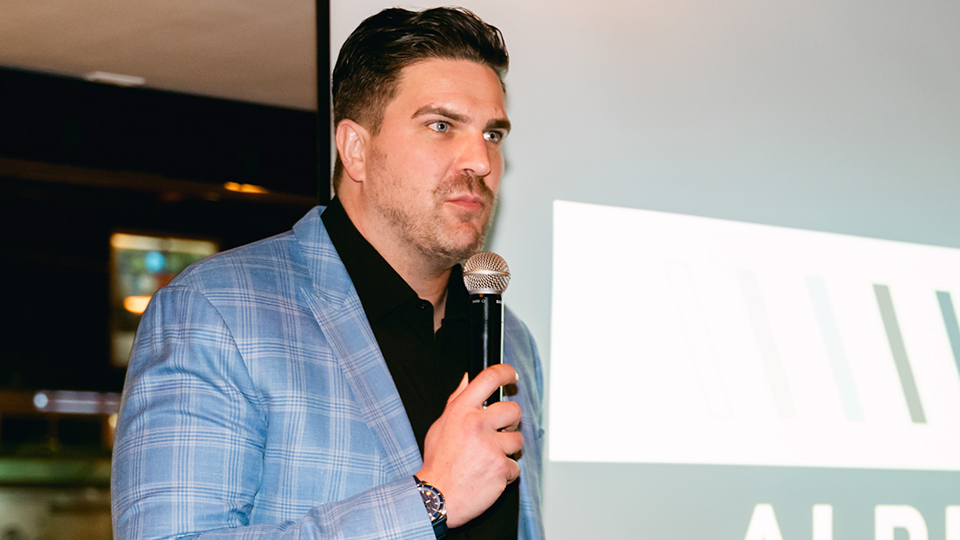
So now for the million-dollar question – where do we go from here?
I think it’s representation. To get the queer community empowered and feeling good about themselves, and then get a member of the community on the Hockey Canada board, get members of the queer community on NHL boards, get them on minor hockey boards, get them coaching, get them as trainers. To get that representation at the governance level, to have that voice and have that perspective, that’s the ultimate goal. Every community needs to be represented. People of colour, people of different religious backgrounds, people of the queer community. Because that’s what makes up Canada. So, if we’re really going to have a board that represents our country, then we need to have a queer seat there.
I want to get it out there and have open conversations and try and educate and humanize, but we’re not going to change everyone’s minds, and that’s not what we’re trying to do. We’re trying to say that the rights that you have, the equality, the celebrations, we want that for queer people.
I think sports are behind the rest of society. If I worked at a bank, I wouldn’t even really have to come out. It’s a big deal in hockey because there has never been anyone that’s done it, and it’s a hypermasculine sport, and we don’t talk about our feelings. We just play hockey and it’s the crest on the front, not the name on the back. Don’t bring your personal problems here – that’s how I was raised in the world of team sports.
But I think with some of the things we’ve seen in the news recently surrounding Pride nights, we’ve actually broken that down a bit and had honest conversations and opened people’s eyes that this is still an issue, that there are still some bigoted views and that it’s not a safe place for everyone yet.
The latest from last week, that NHL teams will no longer wear pregame jerseys for any causes, is disappointing to say the least. Nobody seems to want to focus on the 700+ players who supported our cause and wore Pride jerseys last season, it’s all about the miniscule group that refused. Pride nights (not to mention Hockey Fights Cancer, military appreciation and Indigenous celebrations) were successes across the league, and it’s sad to see the decision that was made.
With all that said, I truly think change is coming, and it starts with our youth.
I coach a U14 minor hockey team in Toronto. When I came out to them, their response was, “Whatever.” It didn’t change anything with them. When I came out to some of my young clients, it was, “It makes you happy and we’re happy for you.”
They’re understanding, they’re compassionate and they really don’t care, but in a good way. A lot of people seem to have a poor opinion of millennials – that they play too many video games and they’re lazy and the old “back in my day, I didn’t do that” mantra. But we’re at a point where the next generation is so eyes-wide-open and accepting that I find the future really promising, and I really think we’re in good hands on diversity and inclusion with our youth coming up.
To finish, I want those that are struggling to know that they’re not alone. There are resources, and there are people to talk to to help you feel accepted. It’s human nature to focus on the negatives, but there are a lot of us trying to break down barriers so queer people feel comfortable working or playing sports and living as their authentic self.
I would never want to be pushed away from the game I love because of sexual orientation. And I thought that was the case for a while, but it’s been the exact opposite.
Who knew? The big, bad hockey world isn’t that big and bad after all.
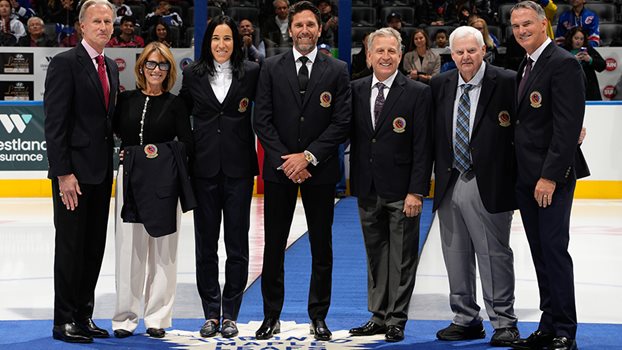
Fab five headed to the Hall
Hitchcock, Lacroix, Ouellette, Turgeon and Vernon part of Class of 2023 for Hockey Hall of Fame
There will be a distinctly Canadian flavour when the Class of 2023 goes into the Hockey Hall of Fame this fall.
Of the seven names announced Wednesday, five have a Canadian connection – Caroline Ouellette, Pierre Turgeon and Mike Vernon will be enshrined in the player category, while Ken Hitchcock and Pierre Lacroix will go in as builders.
A closer look at the inductees…
Caroline Ouellette is one of the most decorated players in international women’s hockey history, winning four Olympic gold medals and six golds at the IIHF Women’s World Championship during a 20-year career with Canada’s National Women’s Team.
The Montreal native recorded 242 points (87-155—242) in 220 games, ranking third in all-time Team Canada scoring. She finished her Olympic career in style, wearing the ‘C’ as Canada topped the podium at Sochi 2014. Ouellette was at her best on the game’s biggest stage, finishing with 26 points (9-17—26) in 20 Olympic games.
In addition to her Team Canada exploits, Ouellette won four Clarkson Cup championships with the Canadiennes/Stars de Montréal in the Canadian Women’s Hockey League (CWHL), claiming CWHL MVP honours in 2008-09 and 2010-11.
Pierre Turgeon made just a single appearance for Team Canada, scoring three goals in six games at the 1987 IIHF World Junior Championship.
He recorded 1,327 points (515-812—1,327) during a 19-year NHL career with six teams – Buffalo, the New York Islanders, Montreal, St. Louis, Dallas and Colorado – winning the Lady Byng Trophy in 1992-93.
Mike Vernon had a pair of experiences in the Maple Leaf, backstopping Canada’s National Junior Team to bronze at the 1983 IIHF World Junior Championship before winning silver with Canada’s National Men’s Team at the 1991 IIHF World Championship.
The Calgary product appeared in six games across his two appearances, posting a 2-2 record with a 3.78 goals-against average.
During a 19-year NHL career spent with Calgary, Detroit, San Jose and Florida, Vernon fashioned a 2.98 GAA and .889 save percentage across 782 games, winning Stanley Cups with the Flames (1989) and Red Wings (1997) and earning the Conn Smythe Trophy in 1997.
Ken Hitchcock was a familiar sight behind the Team Canada bench in the 2000s, serving as an assistant coach at four Olympics (2002, 2006, 2010, 2014), winning three gold medals. He was Canada’s head coach at the IIHF World Championship in 2008 (silver) and 2011, was an assistant at Worlds in 2002 and helped Canada to a World Cup title in 2004.
He got his first taste of international hockey as an assistant at the 1988 IIHF World Junior Championship, winning gold.
The Edmonton native coached the Dallas Stars to the Stanley Cup in 1999 and won the Jack Adams Award as NHL coach of the year with the St. Louis Blues in 2011-12, highlights of a 23-year head coaching journey that included 849 wins – fourth in NHL history – with five teams (Dallas, Philadelphia, Columbus, St. Louis, Edmonton).
Pierre Lacroix, who passed away in 2020 and will be inducted posthumously, spent 20 seasons with the Colorado Avalanche (including one with the Quebec Nordiques before the franchise relocated to Denver in 1995) as general manager and then president, building a team that won Stanley Cup championships in 1996 and 2001.
The quintet will officially be inducted on Nov. 13 at the Hockey Hall of Fame in Toronto, joined by fellow inductees Tom Barrasso and Henrik Lundqvist.
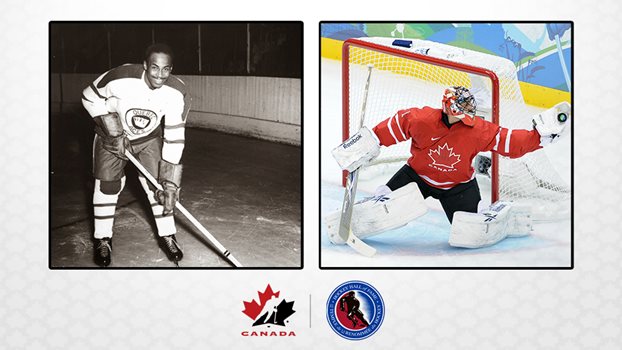
Dynamic duo headed to the Hall
Roberto Luongo and Herb Carnegie join four others in Class of 2022 for Hockey Hall of Fame
Two standout Canadians will be represented when the Class of 2022 goes into the Hockey Hall of Fame this fall.
Of the six names announced Monday, two have connections to Hockey Canada—legendary netminder Roberto Luongo will be enshrined in the player category, while Herb Carnegie will go in as a builder.
A closer look at the inductees…
Few goaltenders can match the international résumé of Roberto Luongo, who played 34 games across 10 events spanning 17 seasons, from the 1998 IIHF World Junior Championship to the 2014 Olympic Winter Games.
After earning Top Goaltender and Media All-Star Team honours at the 1999 World Juniors in Winnipeg, backstopping Canada to a silver medal, Luongo played in four IIHF World Championships in a five-year span from 2001-05, winning back-to-back gold medals in 2003 and 2004. Overall, only Sean Burke and Cam Ward have spent more time in the Canadian net at worlds than Luongo (856 minutes played).
In addition to his place on Canada’s championship-winning entry at the 2004 World Cup of Hockey, the Montreal product was also part of three Canadian contingents at the Olympic Winter Games, most notably at the 2010 Games in Vancouver when he capped his tournament with a 34-save effort in the gold medal game win over the U.S.
Honoured posthumously, Herb Carnegie is revered as one of the best players of his time and a pioneer for Black players in Canada. Carnegie battled racism and discrimination throughout his entire playing career, with many holding the view that he was kept out of the NHL simply because he was Black.
The Toronto-born forward was a standout in the Ontario and Quebec semi-professional leagues, earning three consecutive Quebec Senior Hockey League MVP awards from 1947-49. He joined the Quebec Aces in 1949-50 where he mentored another Canadian legend, Jean Béliveau—together winning the league championship in 1953. After retirement in 1954, he became a successful investor and founded one of Canada’s first hockey schools, the Future Aces, in 1955.
Carnegie’s family and friends had rallied together to get him into the Hockey Hall of Fame. They worked with the Hockey Diversity Alliance and created a petition to get him inducted in the Builder category to recognize his historic career that influenced generations of Black hockey players. Carnegie was also inducted into Canada’s Sports Hall of Fame in 2001 and the Ontario Sports Hall of Fame in 2014.
The duo will officially be inducted on Nov. 14 at the Hockey Hall of Fame in Toronto, joined by fellow inductees Daniel and Henrik Sedin, Daniel Alfredsson and Riikka Sallinen.
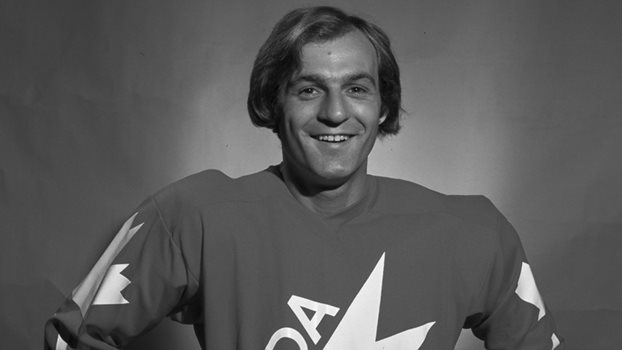
Guy Lafleur: 1951-2022
Hockey Canada sadly acknowledges the passing of the hockey legend, Team Canada alumnus and Order of Hockey in Canada honouree
It is with a heavy heart that Hockey Canada acknowledges the passing of Guy Lafleur.
One of the greatest French-Canadian stars in the history of the game, Lafleur, 70, was announced as a 2022 Distinguished Honouree of the Order ofHockey in Canada in January.
He will be posthumously invested into the Order during the Hockey Canada Foundation Gala in Niagara Falls, Ont., on June 23, alongside Lanny McDonald and Kim St-Pierre.
“Hockey Canada is deeply saddened to learn of the passing of hockey icon and 2022 Distinguished Honouree of the Order of Hockey in Canada, Guy Lafleur,” said Hockey Canada CEO Tom Renney, and president and COO Scott Smith. “On behalf of our entire organization, our deepest sympathies are with his wife Lise, his children Mark and Martin, his entire family, friends and all those who knew Guy and were privileged to play the game both alongside him and against him.
“Guy not only impacted the game, but changed how it was played. He was a hero to all those in Quebec, across the country and around the world. He was a true ambassador for the sport.”
The native of Thurso, Que., represented his country on three occasions – at the 1976 and 1981 Canada Cups, and at the 1981 IIHF World Championship. He recorded four goals and 14 assists in 21 Team Canada games, helping Canada to the 1976 Canada Cup title.
Lafleur is a Montreal Canadiens icon, spending 14 seasons in the bleu, blanc et rouge from 1971 to 1985, leading the Habs to five Stanley Cup championships (1973, 1976, 1977, 1978, 1979) and finishing his career as the franchise’s all-time leading scorer with 1,246 points (518-728—1,246) in 961 games. His No. 10 was retired by the Canadiens in 1985.
Honoured as one of the 100 Greatest NHL Players, he was a two-time Hart Trophy recipient as NHL MVP (1976-77, 1977-78), a three-time Art Ross Trophy winner (1975-76, 1976-77, 1977-78) and a six-time First Team All-Star (1974-75, 1975-76, 1976-77, 1977-78, 1978-79, 1979-80), among countless other awards.
Lafleur’s impact transcended hockey; he earned the Lou Marsh Trophy as Canada’s top athlete in 1977, the year he set a career high with 136 points before adding another 26 in the playoffs, taking home his only Conn Smythe Trophy as playoff MVP.
His offensive exploits in junior hockey were even more outrageous than his NHL accomplishments; in his final two QMJHL seasons with the Quebec Remparts, Lafleur posted a remarkable 233 goals and 379 points, including a 130-goal season in 1970-71, when he captained the Remparts to the Memorial Cup title.
He was inducted into the Hockey Hall of Fame in 1988, the same year he ended his three-year retirement and returned to the NHL with the New York Rangers. He spent one season on Broadway and two more with the Quebec Nordiques before calling it a career for the final time in 1991.
Lafleur was a 1996 inductee into Canada’s Sports Hall of Fame and a 1993 inductee into the Pantheon des sports du Québec, was invested as an Officer of the Order of 1980 and was made a Knight of the National Order of Quebec in 2005.
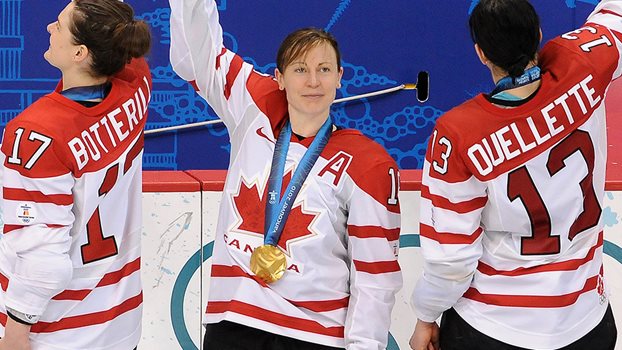
A hometown honour
With Canada’s National Women’s Team in Kingston, Ont., for the Rivalry Series, Team Canada icon and local legend Jayna Hefford is getting a hero’s welcome
Kingston, Ont., is known for producing some incredible hockey talents, including one of the best to ever lace up her skates with Canada’s National Women’s Team—Jayna Hefford.
Four Olympic gold medals (five medals in all). Seven gold medals at the IIHF Women’s World Championship. The second-most goals, third-most assists and second-most points in Team Canada history. And a 2018 inductee into the Hockey Hall of Fame.
On Sunday night in her hometown comes another honour. In recognition of all she’s done and continues to do for the game, Hefford’s Greater Kingston Girls Hockey Association (GKGHA) jersey will be raised to the rafters of the Leon’s Centre prior to the Rivalry Series game between Canada and the United States.
Hefford started her hockey career at six years old before making the move to the women’s game at 10 and playing with the Kingston Kodiaks (now the Greater Kingston Ice Wolves) through to her university career with the University of Toronto.
“I always felt like it was a really supportive community,” says Hefford, who was also a 2019 Distinguished Honouree of the Order of Hockey in Canada. “And thankfully I grew up in a family that encouraged me to follow my dreams. They could tell how much I loved the game.”
Now—having cemented her place in Canadian hockey history—Hefford has turned her attention to the growth of the game for the next generation.
Along with her hockey school in Kingston and the skill camps she runs in communities across Canada, Hefford is the operations consultant for the Professional Women’s Hockey Players Association (PWHPA), helping the organization work towards its goal to provide a viable professional hockey league for women.
“She's always giving back to the community by coming back,” says Jonathan Walker, president of the GKGHA. “She's hosted hockey camps through the summer and those things are loved by our members and they're heavily attended.
“Having someone like that, that can come back, [bringing] national team players with her and just the sheer visibility of women who have excelled in the sport and giving back to our young athletes has always been a great benefit to us.”
The Ice Wolves have seen registration growth in recent years, increasing their membership from 695 in the 2019-20 season to 755 in 2021-22 with the return to hockey.
Kingston will welcome the best of the women’s game once again on Sunday night, playing host to the first Canadian stop of the Rivalry Series.
“Hosting [games like this] in our community is a real honour,” Walker says. “For us to get exposure and to be able to see these high-level athletes is really exceptional for our community and for our girls to witness.”
An eager Kingston hockey community jumped at the opportunity to watch Canada’s National Women’s Team compete live, with the game selling out in just a matter of days.
“[That] made me really proud to see that,” Hefford says. “Kingston's a big hockey community, but the way they're supporting the women's game is really, really incredible. I'm so excited for the players to be able to play in a place like this.”
Hefford will be the first women’s hockey player to have her jersey honoured in Kingston, joining eight men who played for the Kingston Frontenacs of the Ontario Hockey League – Chris Clifford, Keli Corpse, David Ling, Ken Linseman, Tony McKegney, Mike O’Connell, Brad Rhiness and Mike Zigomanis.
“I hope it's a signal to every young girl and boy in that community that if you're passionate about something and you work hard for it anything's possible,” Hefford says of the honour.
“When [I was] growing up, you never would have seen a female hockey player celebrated like this in the community. It just wasn't something that girls did. Now I think it'll be a powerful thing for young girls to see.”
Watch the Jayna Hefford ceremony and the Rivalry Series game on Sunday at 5 p.m. ET/2 p.m. PT on TSN.
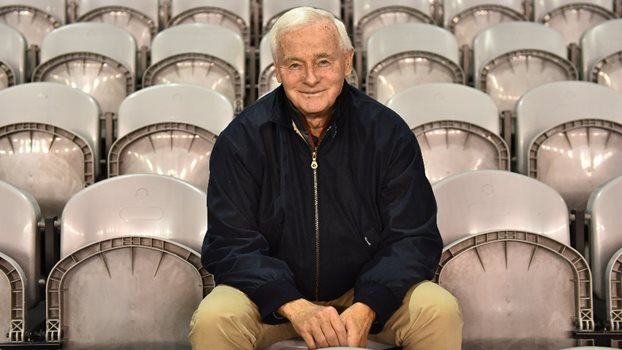
Loose Pucks and Ice Bags
A legend in the coaching world, Dave King has pulled together notes from close to five decades in the game for a new book geared towards coaches, players and parents
There aren’t many people in the game of hockey who have seen, experienced, and accomplished more than Dave King.
For 45 years, starting with his first coaching job with the University of Saskatchewan in 1972 and concluding with being assistant bench boss for Canada’s men’s team at the 2018 Olympic Winter Games, King coached and taught the sport at various levels, from the aforementioned university level to the professional ranks, including the National Hockey League and pro leagues in Germany, Russia and Sweden.
Along the way, the North Battleford, Saskatchewan-born King kept copious notes of what he witnessed, taught and learned to one day put it all together and release a book. Earlier this year, that day came as King released Loose Pucks and Ice Bags: How and Why the Game is Changing.
“Over the years, doing so many coaching clinics and conferences and stuff, a lot of times coaches would come up and ask different questions so I started to realize doing a coaching clinic is good – you get to answer some of the questions. But you can’t remember the whole, complete game,” King says from his winter home in Phoenix. “I’ve always kept pretty meticulous notes on certain aspects of the game and, when you coach as long as I have and in as many different countries as I have, you start to get a big broad picture of why certain countries play the game differently than we do. I have always tried to keep track of my observations of the game knowing that, at some point in time, I was going to do this book when I retired. I tried to collect a lot of good things that I thought were appropriate for coaches, parents and players, put it into a book and try to help people understand the game more and, hopefully, have more fun coaching it and doing it.”
King, a Distinguished Honouree of the Order of Hockey in Canada who coached Canada’s men’s team at three Olympic Games (1984, 1988 and 1992), believes his new book is targeted to three audiences – hockey coaches, players and parents.
Coaches will benefit by King’s experience in his travels all over the world, and what he’s picked up on from the teams he’s coached but also from some other well-known coaches in the game like Herb Brooks and Clare Drake.
Players can read the book and likely find some tactics their own coaches may be trying to teach them. Sometimes, having a second voice, especially one with the experience King has, could help that player better understand a specific tactic or part of the game they are trying to improve upon.
Finally, King says parents will find good use in the book, as they’ll develop a better sense of what their child is going through as they practice and play the great sport of hockey.
“For the parent, it’s important that parents watch their kids play. I think that’s really important,” says King. “But I do believe that, often, parents forget how difficult the game is to play. The game gets faster, the players get bigger and stronger, all those issues. They would understand how challenging it is to be a hockey player. Parents have to be supportive, patient hopefully, and this book might give parents some insight where they become a little more patient with their child and say ‘Hey, it’s hard enough to play. I’m going to be more supportive than I am critical.’”
The title of the book comes from King’s childhood and is a slogan he’s used for many of his teams. King says that, as a kid, he learned from coaches about the importance of getting to the loose pucks on the ice. As he describes it, when you’re in possession of the puck, you’re generally in control of the game. As for ice bags, that’s a reference to the importance of effort.
“You have to make sure you’re always working hard and giving a good effort,” says King. “If you do that, you’re going to be engaged in the game. If you’re engaged in the game, you do get some bumps and bruises so you do need some ice bags after the game.”
Readers will also learn of many of the changes in the game that have taken place to get us to where we are today, including the NHL recognizing the NHL Players’ Association in the late 1960s to the popularity of NHL clubs hiring college coaches in the 1980s to the major rules changes in 1999-2000 when the NHL wanted more offence in the game.
Loose Pucks and Ice Bags: How and Why the Game is Changing is available in bookstores and on Amazon.ca. All proceeds from sales will be donated to Hockey Canada to aid in the development of the next generation of players.
ENDORSEMENTS:
“Kinger is one of the greatest hockey minds of all time. He has coached at every level in numerous countries. His experiences provide him with an unbelievable education that he has shared with coaches and players, to improve the way the game is coached and played.” -- Mike Babcock
“To this day, I have not met a smarter hockey coach or better mentor for coaches worldwide.” -- Dave Tippett
“An insightful look into the game’s evolution from one of hockey’s most progressive minds.” -- Barry Trotz
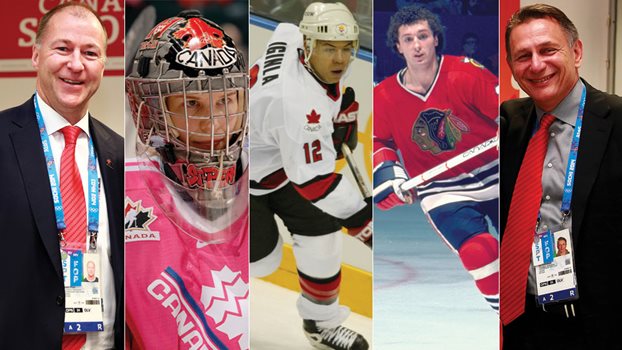
Say hello to the Hall
After a one-year delay, a Canadian-heavy group are finally taking their rightful place in the Hockey Hall of Fame
There will be a distinctly Canadian flavour when the Class of 2020 is inducted into the Hockey Hall of Fame on Monday night.
Almost 17 months after they were first announced (the induction ceremony was postponed by a year due to the COVID-19 pandemic), six legends will take their place among the game’s immortals in downtown Toronto.
Of the sextet who will be honoured, five have connections to Hockey Canada – Ken Holland, Jarome Iginla, Kevin Lowe, Kim St-Pierre and Doug Wilson. (The sixth member of the group is Slovak standout Marian Hossa.)
Before they earn hockey’s highest honour, let’s take a closer look at the five Canadians.
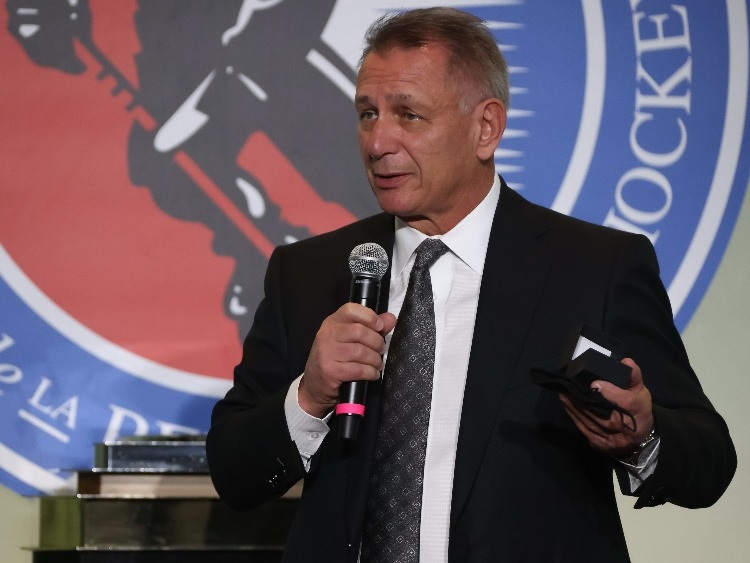
KEN HOLLAND
The lone member of the group not to represent Canada as a player, Holland has been a frequent contributor in the boardroom over the last 15 years.
Best known as a three-time Stanley Cup champion as general manager of the Detroit Red Wings, the Penticton, B.C., native first joined the Team Canada staff as assistant general manager at the 2005 IIHF World Championship, where Canada won silver.
He was general manager at the 2006 worlds and won gold medals at the 2010 and 2014 Olympic Winter Games, as well as a World Cup of Hockey championship in 2016. He is back again as part of the staff with Canada’s Men’s Olympic Team for the 2022 Games in Beijing.
The Quote: “The thing I learned most from Kenny was about hiring good people. He lets them do the job and I do, too. When you get into these [GM] positions, you think you know it all and can do it all, but if the manager hires good people and lets them do the job, that’s best.” -- Jim Nill (Edmonton Sun)
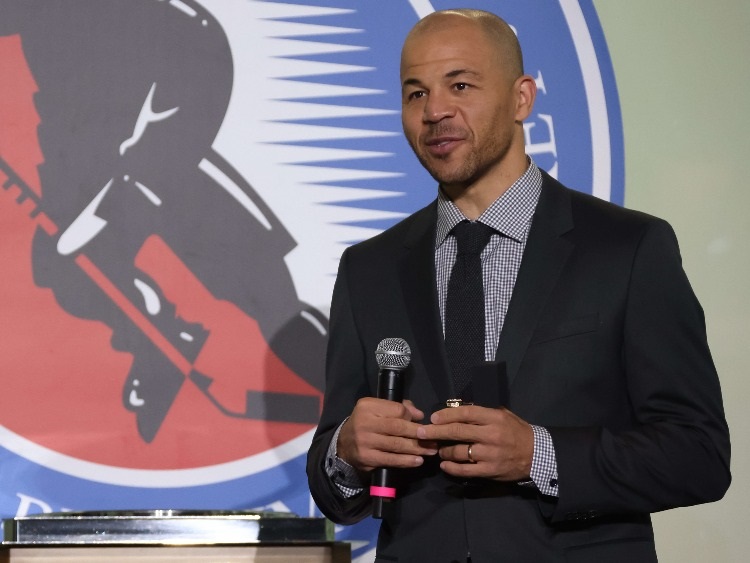
JAROME IGINLA
Iginla stood atop the podium almost everywhere he went with Team Canada – at the 1994 La Copa Mexico (summer under-18), 1996 IIHF World Junior Championship, 1997 IIHF World Championship, 2002 and 2010 Olympic Winter Games and 2004 World Cup of Hockey.
The St. Albert, Alta., native recorded 44 points in 47 games across seven international appearances, but it is the 44th – his 19th and final assist – that will long have a place in Canadian hockey lore.
The screams of “Iggy! Iggy!” came just seconds before Sidney Crosby took a pass from Iginla and slipped a shot five-hole on U.S. goaltender Ryan Miller, giving Canada a historic home-ice Olympic gold in Vancouver and adding the final piece to an impressive international trophy case.
He always seemed to be at his best on the game’s biggest stage; in addition to his helper on the Golden Goal in 2010, Iginla recorded two goals and an assist in the 2002 Olympic gold medal game, helping Canada end a 50-year drought.
The Quote: “It’s a stacked Canadian team [in Salt Lake City] and you’re on it, and a key player on that team. And then you’re out for dinner and four people from Calgary who you don’t know approach you humbly just to say hello really, and for him to find out that they’re down there and they have tickets but they’ve been sleeping in their car and to get up and go get them a hotel room … and pay for it. That’s him in a nutshell. He’s an unbelievably approachable, humble person and he has a heart of gold.” -- Al Coates (Calgary Sun)
TEAM CANADA STATISTICS 1994 La Copa Mexico – 5G 9A 13P (gold medal) 1996 IIHF World Junior Championship – 5G 7A 12P (gold medal) 1997 IIHF World Championship – 2G 3A 5P (gold medal) 2002 Olympic Winter Games – 3G 1A 4P (gold medal) 2004 World Cup of Hockey – 2G 1A 3P (champions) 2006 Olympic Winter Games – 2G 1A 3P (7th place) 2010 Olympic Winter Games – 5G 2A 7P (gold medal)
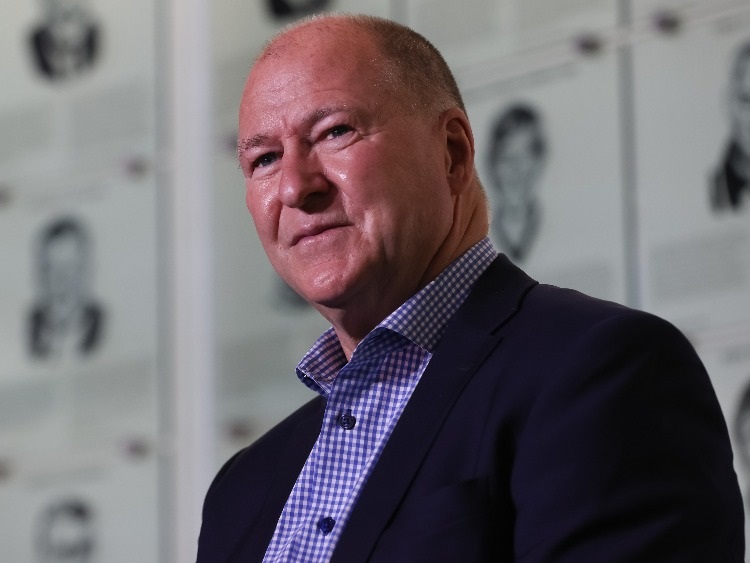
KEVIN LOWE
Lowe represented his country just twice, both early in a 19-year pro career that included six Stanley Cup championships; the Lachute, Que., product helped Canada to bronze at the 1982 IIHF World Championship, and won a Canada Cup title in 1984.
But his greatest international accomplishments came off the ice. Lowe was part of Canada’s management team at four consecutive Olympic Winter Games, winning gold medals in 2002, 2010 and 2014 as a right-hand man to executive directors Wayne Gretzky and Steve Yzerman.
He served in a similar role when Canada won the 2004 World Cup of Hockey, and built Canada’s entry for the 2012 IIHF World Championship as general manager.
The Quote: “Whatever team he's been a part of, whatever his role whether as a player or in management, Kevin's been a winner. And he's also the guy that brings the team together.” -- Craig Simpson (NHL.com)
TEAM CANADA STATISTICS 1982 IIHF World Championship – 1G 1A 2P (bronze medal) 1984 Canada Cup – 0G 4A 4P (champions)
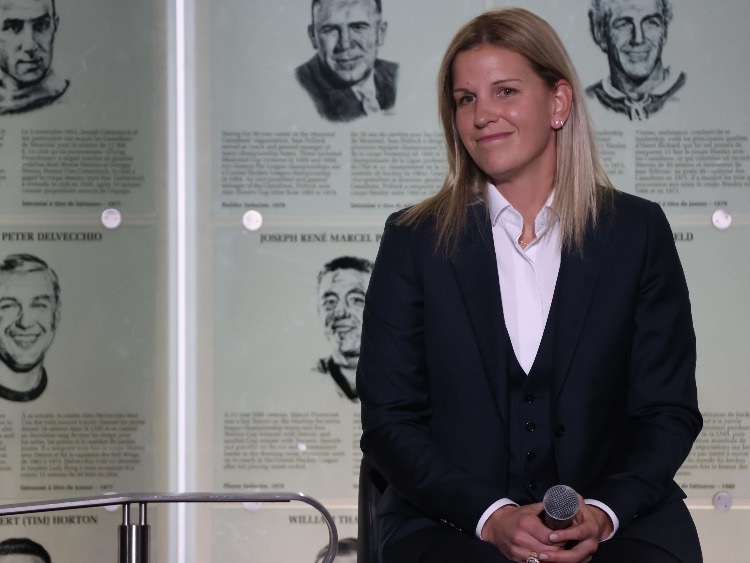
KIM ST-PIERRE
One of the greatest to ever strap on the pads, St-Pierre is the gold standard by which all other goaltenders are measured in the women’s game.
The first female netminder to earn induction, St-Pierre ranks at or near the top in every major category with Canada’s National Women’s Team – she is first in games played (83), minutes played (4,552), wins (64) and shutouts (29), and sits second in goals-against average (1.17) and save percentage (.939).
The Châteauguay, Que., native backstopped Canada to Olympic gold medals in 2002, 2006 and 2010, and added IIHF World Women’s Championship gold in 1999, 2000, 2001, 2004 and 2007.
In addition to the team success, St-Pierre earned her share of individual accolades; she was named Top Goaltender and to the all-star team at the 2002 Olympics, was Top Goaltender at the 2001 and 2004 women’s worlds, and had another all-star nod at the 2007 world championship.
The Quote: “One thing that really separated Kim from her competition was her ability to kind of flirt with the line between cockiness and confidence. If you played for her, you felt so confident that she was going to make every save. And if you played against her, she made every save look easy.” -- Caroline Ouellette (NHL.com)
TEAM CANADA STATISTICS 1999 IIHF World Women’s Championship – 2-0 / 0.50 GAA / 1 SO (gold medal) 2000 IIHF World Women’s Championship – 2-0 / 1.20 GAA / 0 SO (gold medal) 2001 IIHF World Women’s Championship – 3-0 / 0.67 GAA / 2 SO (gold medal) 2002 Olympic Winter Games – 4-0 / 1.25 GAA / 2 SO (gold medal) 2004 IIHF World Women’s Championship – 2-1 / 1.00 GAA / 2 SO (gold medal) 2005 IIHF World Women’s Championship – 2-1 / 0.00 GAA / 3 SO (silver medal) 2006 Olympic Winter Games – 2-0 / 0.50 GAA / 1 SO (gold medal) 2007 IIHF World Women’s Championship – 3-0 / 0.33 GAA / 2 SO (gold medal) 2008 IIHF World Women’s Championship – 2-1 / 2.63 GAA / 0 SO (silver medal) 2009 IIHF World Women’s Championship – 2-0 / 0.00 GAA / 2 SO (silver medal) 2010 Olympic Winter Games – 2-0 / 0.00 GAA / 2 SO (gold medal) 2011 IIHF World Women’s Championship – 1-0 / 0.00 GAA / 1 SO (silver medal)
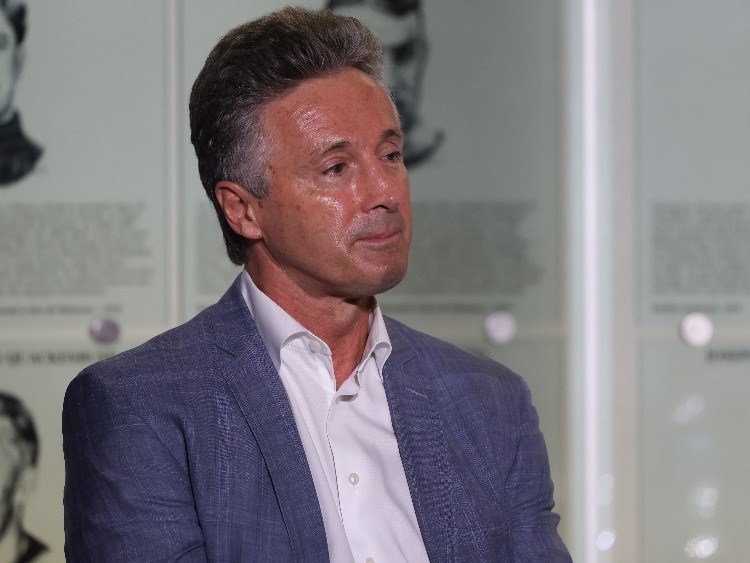
DOUG WILSON
Doug Wilson made just a single appearance in the Maple Leaf during his 16-year playing career, joining Lowe on the blue-line at the 1984 Canada Cup.
The Ottawa product got involved off the ice following his playing days, serving as a consultant with Canada’s National Junior Team during its run of five consecutive gold medals at the IIHF World Junior Championship in the mid-1990s, and in the same role with Canada’s Men’s Olympic Team at the 1998 Games.
The Quote: “He had an outstanding hockey IQ. He saw the game and read the game. If you put him in today's game the way the game is played now, you see the numbers he put up then, he'd put up even bigger numbers now.” -- Darryl Sutter (NHL.com)
TEAM CANADA STATISTICS 1984 Canada Cup – 2G 1A 3P (champions)

In My Own Words: Meghan Hunter
The Chicago Blackhawks’ director of hockey administration and amateur scout talks about her path from Oil Springs to the Windy City, and helping blaze a trail for women in the National Hockey League
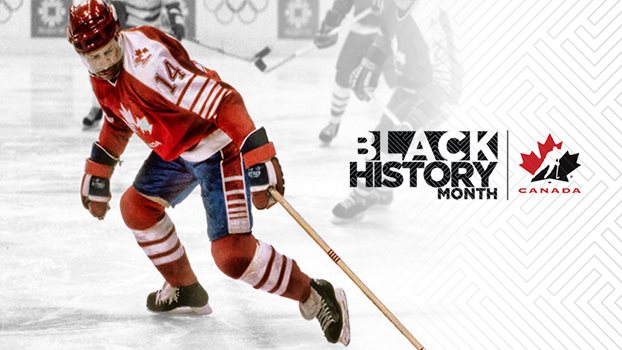
In My Own Words: Darren Lowe
The first Black player to represent Canada at the Olympics looks back on his journey in the game, from neighbourhood rinks to Sarajevo and the University of Toronto
I’ll start by saying this – I don’t consider myself a trailblazer.
I get asked about certain things I accomplished … about being the first Black coach in Canadian university hockey, about being the first Black player to play for the Pittsburgh Penguins, about being the first Black player to represent Canada at the Olympics.
I guess I don’t really think about these as ‘firsts’. They were just part of my hockey journey, regardless of the colour of my skin. People ask me about being a Black player, but I only thought of myself as a hockey player.
I'm nowhere near the type of player Jarome Iginla is and was, or P.K. Subban. They weren’t Olympians because of me; they were Olympians because of the talent they had. It wasn’t because they were Black; it was because they were great players.
But to be mentioned in the same conversation as them? That’s something pretty special.
This is a pretty Canadian thing to say, but I was a hockey-obsessed kid. Because my dad was involved in hockey, it was just natural that my brother and I played. We were lucky enough to live on a street in Toronto that had city rinks at both ends, so we had access to ice all the time. And when it wasn’t cold enough, we played ball hockey day and night. We lived and breathed the game.
I got into organized hockey on those same rinks, playing outdoors. I played in the Catholic Youth Organization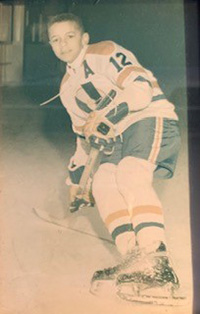 (which was strange, because I’m Protestant) in my early years and won a provincial championship. I moved on to the Metro Toronto Hockey League (today it’s the GTHL) and played there through Midget.
(which was strange, because I’m Protestant) in my early years and won a provincial championship. I moved on to the Metro Toronto Hockey League (today it’s the GTHL) and played there through Midget.
Being from Toronto, such a multicultural city, I was rarely the only player on my team who was Black, or at least from a different cultural background. I can’t say there was never name-calling or racial comments, but they were few and far between. I've heard stories from other guys about how terrible the racism was, and not even wanting to go to the rink. I never really experienced that. Was there something underlying that I wasn't exposed to but people were talking behind my back? Maybe. But to my face? Not so much.
Once I got to junior, a couple of times there was some name calling, which ended up – I'm not proud to say this – in a fight after it happened. But it wasn't something that deterred me from going to the rink or made me really uncomfortable, and we had family discussions about it all the time.
Family has always been so important to me. By the time I started playing hockey and my brother started playing hockey, my dad was kind of out of the game. So we only heard the stories of his days on the ice. And they were so much fun to hear.
In the early 1950s, my dad ended up in Mount Forest, Ont., about two hours northwest of Toronto. He travelled with another guy for a potential job, and after he got on the ice and they saw how he played, they wouldn’t let him leave. Apparently, they hid his clothes so he had to stay.
Dad ended up playing Intermediate hockey with the Mount Forest Redmen on an all-Black line with Howard Sheffield and Gary Smith , which was pretty rare back then. But it’s a great piece of history and something our family is so proud of.
My dad coached my brother and I a little bit when we were young, but not for long. He wasn’t an overbearing hockey parent that yelled at the rink or anything like that. He was pretty quiet, but one-on-one, his thing about hockey was scoring. It drove me to want to score all the time, and if you look at my career numbers, I think I did okay!
After my junior days, I ended up with a full scholarship from U.S. International University, which was based in San Diego and was going to play NCAA Division I hockey. I headed south, not really knowing what to expect. I spent a year down there and we played some great college teams. That’s where I took off as a player. My stats were really good against great competition and academically I did really well. Because of that, it allowed me to get into the University of Toronto.
I loved playing at home. It was the right level for me, and the confidence I got from those years led me to Sarajevo in 1984.
The journey to become an Olympian was an interesting one. From my performance with the U of T, I had earned a scholarship from Hockey Canada … I think there were only 50 or so handed out across the country. As a recipient I ended up on the radar of the national team and was invited to Calgary to be part of the team during the 1983-84 season leading up to the GamesI went through the process but didn’t think I had any real chance. Up against guys who were drafted into the NHL, the odds were just not in my favour. I was on the bubble and always having to prove myself.
That season was an absolute grind. We were based in Calgary, but I think we only played eight games there all season. We played series against the United States, we played against the Russians, we went to a bunch of tournaments in Europe, and I think it was maybe 80-something games. I'd wake up in a hotel room and I wouldn't know where the heck I was because we travelled so much.
When we got back from a tournament in Sweden, a few guys, myself included, were given the option of returning to school. We weren’t being cut, but we were told there was no guarantee we’d make the team.
But this was the Olympics. When would this opportunity come around again? Probably never. So I was committed. The odds were against me – they were bringing guys in and out all the time from different places – but I still had a lot of confidence. Even at the last minute, I think they had thoughts about maybe not keeping me, but I ended up on the top line in the Olympics. So things just worked out.
The experience in Sarajevo was great. Living in the Olympic Village was different – there were armed guards everywhere and you had to check in and out all the time – but it was a lot of fun. There was an entertainment centre and we used to go play pinball, because that was a big thing back then. The day of the game, we'd go play pinball.
On the ice, we played great. We won our first four games to clinch a spot in the medal round. In the end, we had a game for the bronze against Sweden and we just couldn’t get it going. We lost 2-0. Would I love to have an Olympic medal right now? Of course. But just the fact that I was at the Olympics was an amazing experience. And we got to go to the other events and meet the other athletes. It was like a Canadian community – we went and watched figure skating when we could, we went to bobsleigh, we went to speed skating. Gaétan Boucher was in the Olympics that year in speedskating, and it was outdoors. There are a lot of great memories like that.
One amazing hockey memory led straight to another. Coming out of the Olympics, I had a couple NHL offers. I didn’t even have an agent, but Doug Lidster, who had been a roommate of mine through the season, set me up with his. I ended up in Pittsburgh and played my only eight NHL games with the Penguins. The running joke is that they were going hard after Mario Lemieux and wanted to finish with the worst record so that’s why they signed me. Did I ever realistically think I'd play in the NHL? Probably not. I was an average player as a kid. I just worked at it.
Because I played those eight NHL games, I lost a year of university eligibility. So for the 1984-85 season, I bounced around a little. I went to training camp with Edmonton, I played a couple exhibition games for Team Canada, helped it win the Spengler Cup the first time it went to Davos for the tournament and played a little bit of Senior hockey before I headed back to school in the fall of 1985.
I was finishing up teacher’s college, but halfway through the year I signed a contract to play pro in Europe starting in the 1986-87 season. It was challenging for me to complete my education, but I knew I had to do it because I didn’t know if I was going to ever make a lot of money playing hockey and I had to have something to fall back on.
I had a great time in Europe, living and playing in Vienna and Helsinki, learning more about the game and about myself. I came back for 1987-88 and had an unbelievable year in the IHL with Flint, finishing third in the league in scoring with 117 points. That took me to Maine in the AHL for a season and back to Flint before my playing career finished up in San Diego in 1990-91.
I got right into teaching when I retired, but I knew I wanted to coach. I called up Paul Titanic at the University of Toronto, but his staff was full. I ended up as an assistant at Ryerson, where we didn’t win a game all season. It wasn’t pretty, but I learned a lot. I got on at the U of T the following season, we won the OUA title and reached the national final, and I was off and running from there.
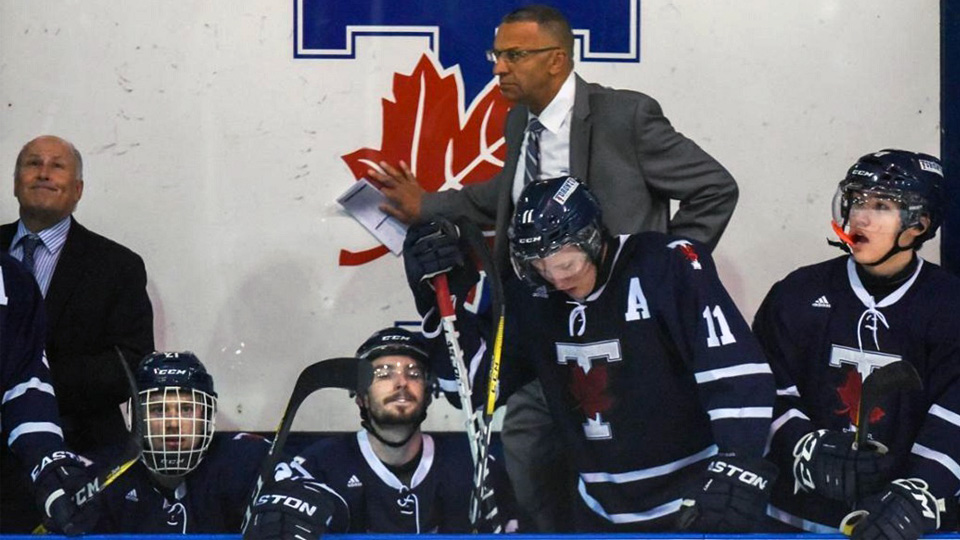
Two years later I became the head coach when Paul stepped down. It was another hockey dream come true. As a kid, I went to games at the U of T. I played my university hockey there. The rink was always packed, and to think that I was going to become the head coach was amazing.
I had no coaching experience other than an assistant coach. I fell back on some of the things I learned from the coaches that I had, and I had some great coaches when I played. And I made a million mistakes. I was probably a terrible coach at times, and sometimes I was good. We had good teams, we had bad teams.
I love the university game. The players are student-athletes in the purest form. They know they aren't going to become pros, but they want to play hockey at the highest level they can. If you can have an impact on their lives in some small way, it’s all worth it.
I stepped away from coaching in 2017 because it was time. I had the opportunity to change my life, to spend time with my family because my kids were still young enough that they were at home, and I could go to my son's hockey games, and I could go to my daughter's soccer and volleyball games. I could be a real dad and a husband, and eat dinner at home with everybody.
Today I’m an instructor at the U of T, teaching a coaching course and something called Pedagogy of Playing Games. I don't like marking, but I love teaching and I love working with the students.
So that’s me. I had a lot of fun when I played, and I made the best of my limited abilities. I worked my ass off. And that's what people do when they have a passion.
Hockey was never a job, and I am forever indebted to the game for what it has given me.
About the author Darren Lowe represented Canada at the 1984 Olympic Winter Games, recording two goals and an assist in seven games as Canada finished fourth. He also helped Canada win the 1984 Spengler Cup. The Toronto native played 336 games of professional hockey, including eight NHL games with the Pittsburgh Penguins in 1983-84, before spending 25 seasons on the staff of the men’s hockey team at the University of Toronto, including 22 years (1995-2017) as head coach.
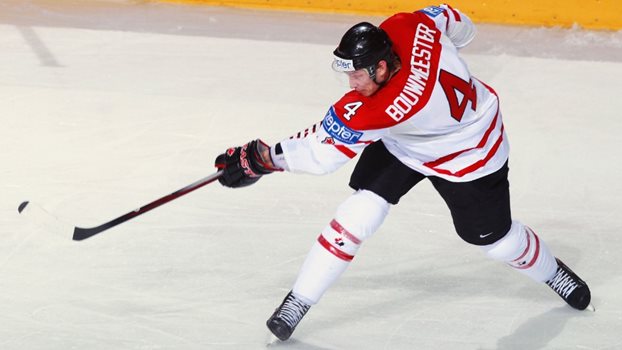
Bo takes a final bow
Olympic gold medallist Jay Bouwmeester announces retirement
There really wasn’t much Jay Bouwmeester didn’t accomplish on the ice.
The defenceman, who officially announced his retirement on Monday, was the 29th and most recent player to earn membership in the IIHF Triple Gold Club, having won a Stanley Cup (2019), Olympic gold medal (2014) and IIHF World Championship gold medal (2003, 2004).
His international journey began nearly two decades before he earned the last piece of that rare trifecta with the St. Louis Blues, when he cracked the roster of Canada’s National Junior Team for the first time.
Just 10 months after he represented Alberta at the 1999 Canada Winter Games, the Edmonton native became the youngest player to make Team Canada – his debut at the 2000 World Juniors came at 16 years, two months and 29 days – a record he still holds.
Bouwmeester made three appearances at the World Juniors, winning a silver (2002) and two bronze (2000, 2001) before making the jump to the IIHF World Championship in 2003 following his rookie NHL season with the Florida Panthers.
He turned in his greatest international performance in Finland, winning Top Defenceman honours and earning a place on the Media All-Star Team after posting seven points in nine games and, most importantly, helping Canada to a gold medal.
Bouwmeester was back at the worlds a year later, scoring the game-winning goal 20 seconds into the third period in a 5-3 win over Sweden in the gold medal game, and he helped Canada to a 2004 World Cup title just four months after that.
In 2006 he was an injury replacement for Scott Niedermayer for the 2006 Olympic Winter Games, and he made his final two appearances at the world championship in 2008 – winning a silver medal on home ice in Quebec City and Halifax – and 2012.
Bouwmeester added Olympic gold to his collection in 2014 as a veteran presence on the Canadian blueline in Sochi, before rounding out his international career with a second World Cup of Hockey title in 2016.
In total, he recorded 18 points (five goals, 13 assists) across 78 Team Canada games, spanning almost 17 years.
The third-overall pick by Florida in the 2003 NHL Entry Draft, Bouwmeester played 1,240 NHL games with the Panthers, Blues and Calgary Flames before his career was prematurely ended when he suffered cardiac arrest on the bench during a game on Feb. 11, 2020.
When the Blues won the Stanley Cup he became the 11th Canadian to earn Triple Gold status, joining Rob Blake, Joe Sakic, Brendan Shanahan, Niedermayer, Chris Pronger, Eric Staal, Jonathan Toews, Patrice Bergeron, Sidney Crosby and Corey Perry.
He finished with 424 points (88 goals, 336 assists) and skated in a pair of NHL All-Star Games (2007, 2009).
| Year | Team | Event | GP | G | A | PTS | PIM | Result |
| 2000 | CAN | World Juniors | 7 | 0 | 0 | 0 | 0 | Bronze |
| 2001 | CAN | World Juniors | 7 | 0 | 2 | 2 | 6 | Bronze |
| 2002 | CAN | World Juniors | 7 | 0 | 2 | 2 | 10 | Silver |
| 2003 | CAN | Worlds | 9 | 3 | 4 | 7 | 4 | Gold |
| 2004 | CAN | Worlds | 9 | 2 | 1 | 3 | 0 | Gold |
| 2004 | CAN | World Cup | 4 | 0 | 0 | 0 | 0 | 1st |
| 2006 | CAN | Olympics | 6 | 0 | 0 | 0 | 0 | 6th |
| 2008 | CAN | Worlds | 9 | 0 | 0 | 0 | 4 | Silver |
| 2012 | CAN | Worlds | 8 | 0 | 2 | 2 | 0 | 5th |
| 2014 | CAN | Olympics | 6 | 0 | 1 | 1 | 0 | Gold |
| 2016 | CAN | World Cup | 6 | 0 | 1 | 1 | 4 | 1st |
| CAN | TOTAL | 78 | 5 | 13 | 18 | 30 |
For more information: |
- <
- >
